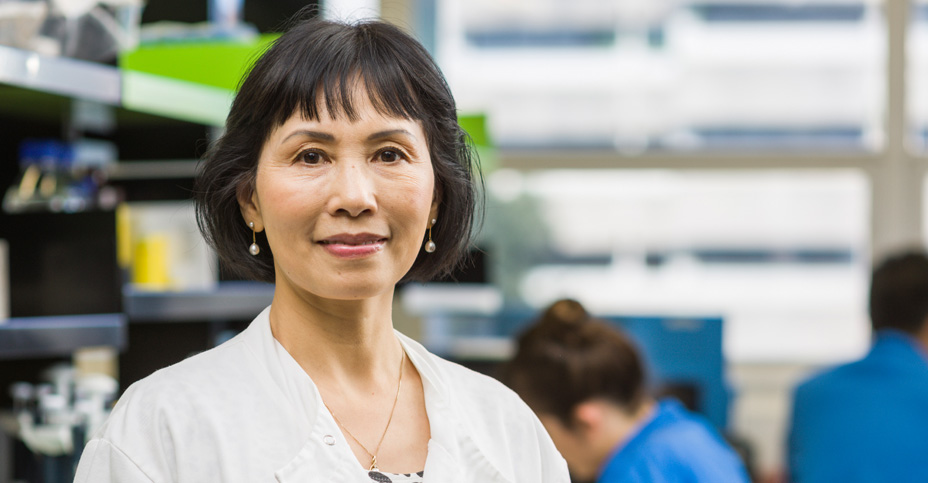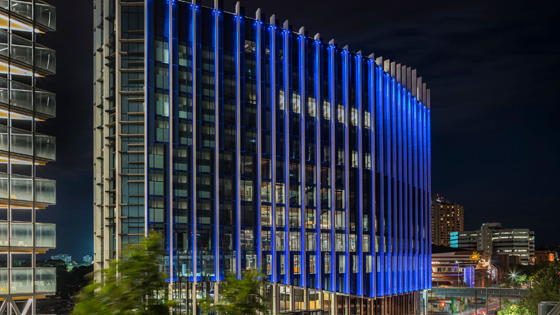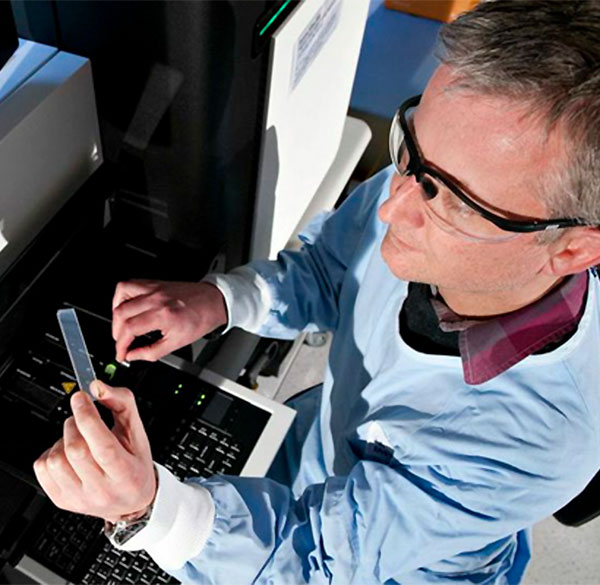
A team of world-leading cancer researchers are perfecting a safer therapy for children with acute leukaemias to improve survival rates and reduce side-effects.
The research team is led by Professor Shudong Wang, University of South Australia (UniSA), who is globally recognised for her work in developing effective and minimally toxic, targeted cancer therapies.
“Our approach to creating better cancer therapies is to find and then target the specific genes or proteins that drive cancer cell development and growth,” says Professor Wang.
“By targeting these specific genes or proteins, our drug molecules are more effective against cancer cells but less toxic to normal tissue. So, our therapies are very different to the conventional chemotherapies that kill both cancer and healthy cells.”
Acute leukaemia is the most common form of childhood cancer and the primary cause of childhood cancer-related deaths.
The more dangerous forms of acute leukaemias share a mutated gene called MLL gene. Survival rates are bleak for these patients and highly intensive chemotherapy is often used to try to stop the cancer. Unfortunately, these treatments often leave children with severe side effects that can continue into adulthood.
“We are investigating a specific class of cancer causing proteins called cyclin-dependent kinases (CDKs) that drive cancer cell survival and growth.
“We have developed a highly potent and selective CDK inhibitor drug that can effectively block the cancer from continuing to grow and kill the cancer cell with minimal toxicity to healthy cells.
“This provides a very exciting prospect for treatment of childhood leukaemia; especially as the drug compound can be given orally and improve the protection of the vitally important development stages of their young bodies, which current treatments often harm.
“Ultimately, our new targeted therapies will reduce the side-effects caused by chemotherapies to safeguard the developing minds and bodies of children with leukaemia.”
Professor Wang’s research team is also developing several other new therapeutics that effectively target other types of blood cancers and solid tumours of the breast, prostate and ovary.
UniSA is committed to tackling cancer – one of the most challenging diseases affecting Australians today. As part of this commitment, the UniSA Cancer Research Institute was opened on May 10 – bringing together the largest cohort of cancer researchers ever assembled in South Australia to work collaboratively to fight cancer.
To join UniSA’s fight against cancer and support cancer researchers including Prof Wang, visit unisa.edu.au/jointhefight.

When you give today, 100% of your donation will go directly to the researchers - with no admin fees or hidden costs.
The University of South Australia (UniSA) is committed to tackling one of our most challenging diseases – cancer – by establishing the largest cohort of cancer researchers ever assembled in South Australia. Every day our experts are getting one-step closer to saving more lives as well as improving the quality of life for cancer survivors. But they need your help.
